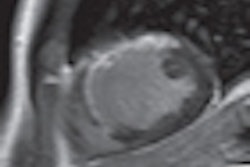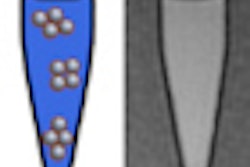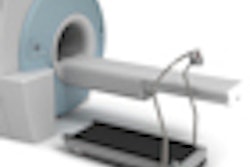Cases of nephrogenic systemic fibrosis (NSF) can be avoided by implementing a strict protocol for administering gadolinium-based contrast agents (GBCAs) before imaging, according to a study presented this week at the American Roentgen Ray Society (ARRS) annual meeting.
Lead study author Dr. Ozden Narin, from Massachusetts General Hospital (MGH), said that implementing the protocol is particularly important for patients with diminished kidney function.
The hospital implemented its guidelines for gadolinium-based contrast agents in May 2007. The protocol calls for the following:
- Screening all patients who are scheduled for an MRI scan with a GBCA to identify those at increased risk for developing NSF
- The use of low-dose GBCAs in patients with an estimated glomerular filtration rate (eGFR) between 30 and 59 mL/min/m2
- Prohibiting the administration of GBCAs in patients with an eGFR less than 30 mL/min/m2
Narin and colleagues retrospectively reviewed 52,954 contrast-enhanced MRI scans from MGH and the closest corresponding eGFRs from January 2008 through April 2010. Gadopentetate dimeglumine (Magnevist, Bayer HealthCare Pharmaceuticals) was the contrast agent used during the 2.5-year study period.
Pathology records were also reviewed for any new cases of NSF from January 2008 through September 2010.
The analysis of renal function test results found that 26.2% (13,867 of 52,954) of contrast-enhanced MRI examinations had no recorded creatinine value prior to the MRI, 12.3% (6,490 of 52,954) had an eGFR less than 60 mL/min/m2, and 0.07% (38 of 52,954) had an eGFR less than 30 mL/min/m2.
Most important, pathology records uncovered no new cases of NSF during the study period. Thus, Narin and colleagues concluded that the MRI protocol was effective for preventing NSF among their patients.
Narin added that she hopes the protocol will continue to make a difference at MGH and at other medical centers. Currently, MGH only uses gadolinium-based contrast agents in patients with decreased kidney function in emergent cases, and the facility has special procedures in place for those patients to ensure that all necessary precautions are taken.



















